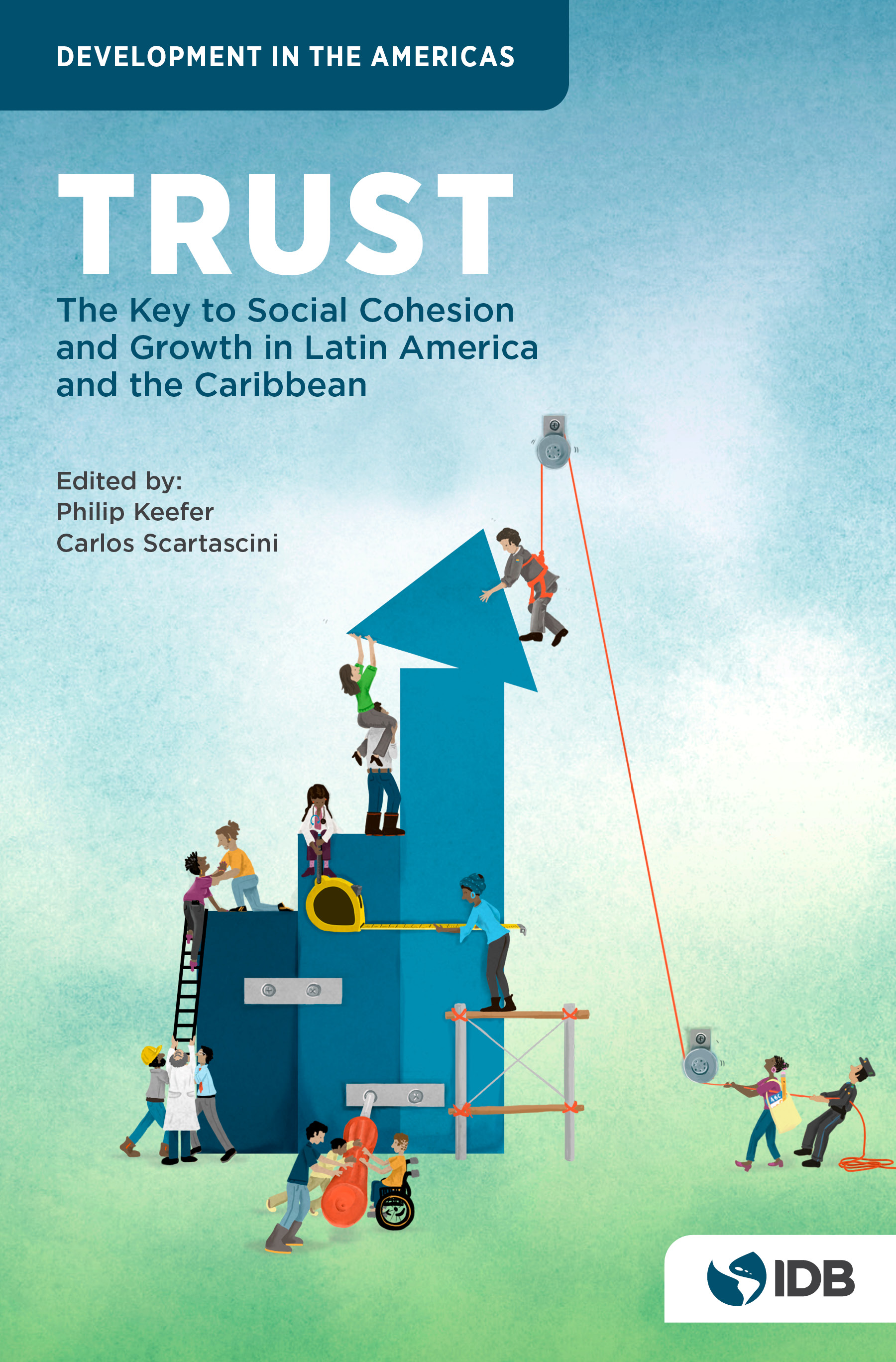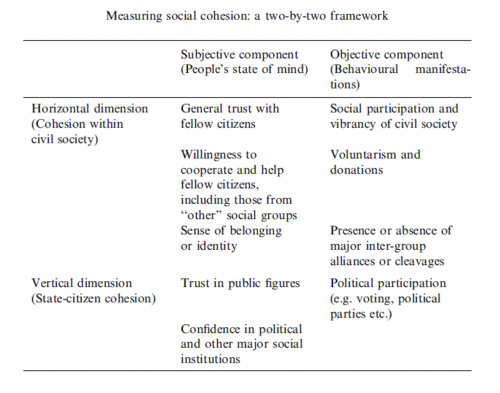Trust: The Key to Social Cohesion and Growth in Latin America and the Caribbean
Key facts
Intergroup relations
Identity/feeling of belonging
Participation
Equality/Inequality
Orientation towards the common good
Shared values
Cooperation
Tolerance
Connectedness
Economic development
Youth
Political institutions & governance
Inequality
Concept & measurement
Development cooperation
Climate
Summary
Trust is a tremendous opportunity for countries in Latin America and the Caribbean. By making trust a goal of public policy, and not simply its byproduct, countries can accelerate growth and employment. Decisions to invest, employ, produce, buy, or sell all depend on trust. The most productive, skilled, and innovative individuals have greater economic opportunities in high-trust societies. Greater trust will unleash growth.
Mistrust in the private sector is an obstacle to inclusive growth. It is well known that the business sector tends to distrust governments, and this hurts investment and productivity. A survey of thousands of export-oriented firms in the region reveals that distrust within firms is also an obstacle to investment and innovation.
Mistrust in the public sector is an obstacle to inclusive growth. Trust in governments is low in the region. Our study finds that the lack of trust makes it difficult for citizens to demand better public policies and services. A survey of thousands of public officials revealed that mistrust within public agencies, and their mistrust of citizens, reduces public sector capacity to serve citizen needs, including a regulatory environment conducive to growth and investment.
Restoring trust depends on information and empowerment. Citizens do not trust government when they are uninformed about what government is doing for them, and when they have little capacity to act together to hold government accountable. Firms do not trust each other when they can do little about opportunistic behavior. Governments can inform and empower, and the IDB is helping them do this: strengthening education and regulatory institutions; reducing barriers to entry for productive workers and firms; and, at a broader level, encouraging governments to make promises, fulfill promises, and communicate both to citizens.





